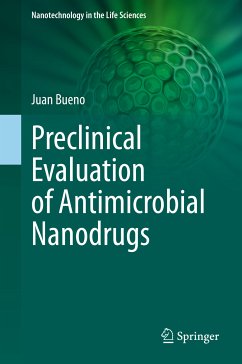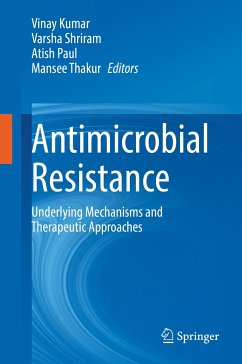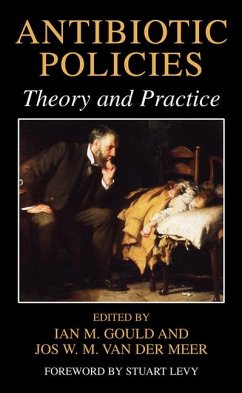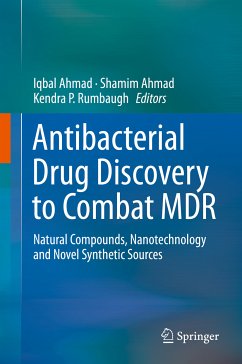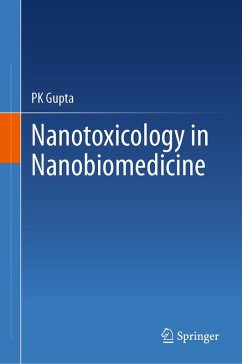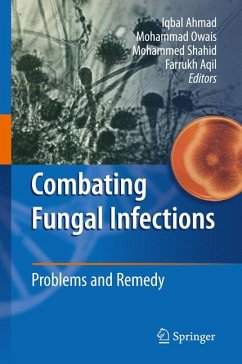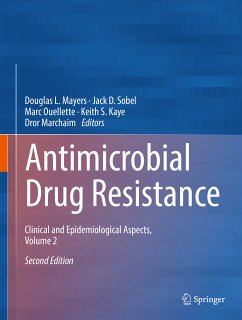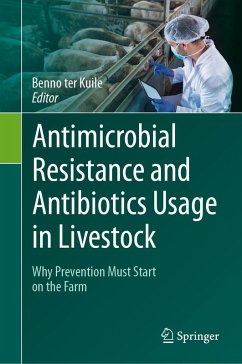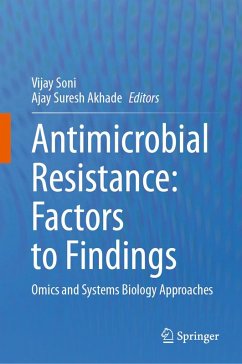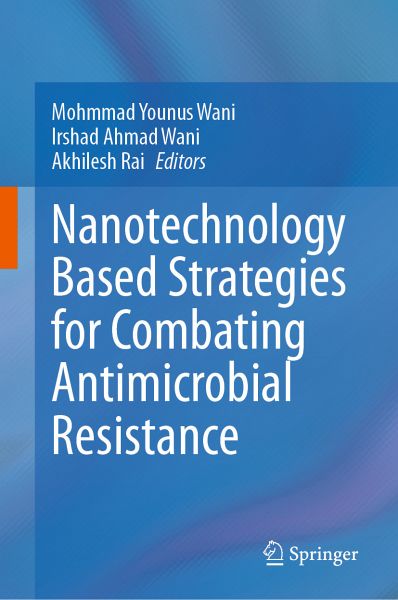
Nanotechnology Based Strategies for Combating Antimicrobial Resistance (eBook, PDF)
Versandkostenfrei!
Sofort per Download lieferbar
128,95 €
inkl. MwSt.
Weitere Ausgaben:

PAYBACK Punkte
64 °P sammeln!
This book provides a comprehensive overview of recent advances in nanotechnology as an alternative strategy for addressing antimicrobial resistance (AMR). Examining nanotechnology-based methods such as nanoencapsulation, drug delivery, and conjugation, the text highlights their successful application in treating microbial infections with reduced resistance and off-target toxicity. The introductory section outlines AMR and explores diverse mechanisms of microbial resistance, emphasizing the potential of nanotechnology to surmount these challenges. Subsequent chapters investigate the role of spe...
This book provides a comprehensive overview of recent advances in nanotechnology as an alternative strategy for addressing antimicrobial resistance (AMR). Examining nanotechnology-based methods such as nanoencapsulation, drug delivery, and conjugation, the text highlights their successful application in treating microbial infections with reduced resistance and off-target toxicity. The introductory section outlines AMR and explores diverse mechanisms of microbial resistance, emphasizing the potential of nanotechnology to surmount these challenges. Subsequent chapters investigate the role of specific nanomaterials-metal nanoparticles, metal oxide nanoparticles, functionalized quantum dots, magnetic nanoparticles, bimetallic nanoparticles, nanocomposites, carbon nanomaterials, and polymer-based nanomaterials-in overcoming antimicrobial resistance. Several chapters focus on the efficacy of nanoemulsions as an antimicrobial delivery method, underscoring their inherent antimicrobial properties, capacity to enhance drug solubility, stability, bioavailability, and targeting potential at the organ and cellular levels. The concluding section provides a detailed review of liposomes, dendrimers-based nanoparticles, and micelles as drug delivery vehicles in the context of combating pathogens resistant to antimicrobials.
Dieser Download kann aus rechtlichen Gründen nur mit Rechnungsadresse in A, B, BG, CY, CZ, D, DK, EW, E, FIN, F, GR, HR, H, IRL, I, LT, L, LR, M, NL, PL, P, R, S, SLO, SK ausgeliefert werden.



